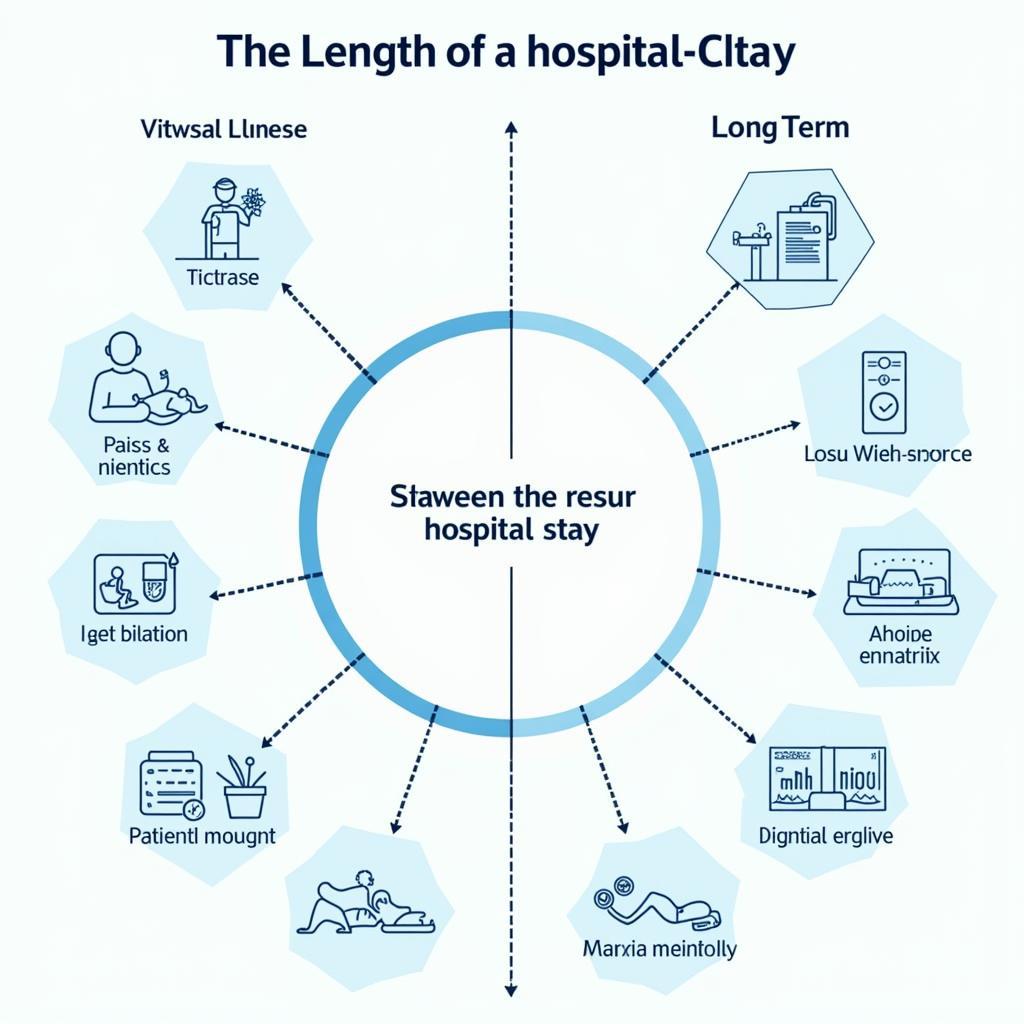Hospital Confinement Meaning refers to the period a patient is admitted and stays in a hospital for medical observation, diagnosis, or treatment. It begins upon admission and ends upon official discharge. Understanding this term is crucial for patients, families, and even insurance purposes.
What Exactly Does Hospital Confinement Mean?
Hospital confinement isn’t just about being physically present in a hospital. It implies a formal admission process, where the patient is registered and assigned a bed under the care of a physician. This period involves active medical management, from routine check-ups to complex surgeries, depending on the patient’s condition. The confinement ends with a formal discharge order from the physician.
 Hospital Admission Process
Hospital Admission Process
Distinguishing Confinement from Observation
While both involve a hospital stay, confinement differs significantly from observation. Observation status implies the patient is being monitored for a potential condition, but hasn’t yet been formally admitted. This distinction is particularly important for insurance coverage, as some policies may not cover observation stays in the same way they cover confinement. Confined patients are generally considered “inpatients” while those under observation might be classified as “outpatients” even though they are physically in the hospital.
What questions do people frequently ask about hospital confinement? Let’s explore some common queries.
Common Questions about Hospital Confinement
What factors determine the length of confinement?
The duration of hospital confinement varies depending on the patient’s medical condition, treatment plan, and response to treatment. It can range from a few days for minor ailments to several weeks or even months for complex illnesses or surgical recovery.
 Factors Influencing Hospital Stay Duration
Factors Influencing Hospital Stay Duration
How does hospital confinement affect insurance coverage?
Hospital confinement significantly impacts insurance coverage. Most health insurance policies cover a portion or all of the expenses incurred during confinement, including room charges, medical tests, treatments, and medications. However, the extent of coverage depends on the specific policy and the patient’s insurance plan. For example, some policies might have limitations on the number of covered days or require pre-authorization for certain procedures. Understanding the specifics of your policy is vital before undergoing any hospital stay. You might consider checking out resources like the prudential hospital indemnity payout chart to understand potential payouts.
What are the implications of being discharged against medical advice (AMA)?
Patients always have the right to leave the hospital against medical advice. However, doing so can have potential implications. Leaving AMA might affect insurance coverage and could also increase the risk of complications or worsen the existing condition. If you are considering leaving AMA, discussing your concerns with your physician is crucial to understand the potential risks and make an informed decision.
Dr. Emily Carter, Chief Medical Officer at San Jose Hospital, advises, “Understanding the implications of leaving AMA is crucial. Patients should always feel comfortable discussing their concerns and treatment options with their healthcare providers.”
What are my rights as a confined patient?
As a confined patient, you have several rights, including the right to receive quality medical care, access your medical records, make informed decisions about your treatment, and maintain your privacy and confidentiality. San Jose Hospital prioritizes patient rights and ensures a comfortable and respectful environment throughout your stay. Perhaps you’ve had experiences like those described in dream about escaping a mental hospital, and understanding your rights can empower you.
 Patient Rights During Hospitalization
Patient Rights During Hospitalization
Conclusion
Understanding hospital confinement meaning is essential for navigating the healthcare system effectively. It involves not only the physical stay but also the formal admission and discharge process, as well as its impact on insurance coverage. San Jose Hospital is dedicated to providing exceptional care throughout your confinement, ensuring your comfort, safety, and well-being. Don’t hesitate to reach out if you have further questions.
FAQ
- What is the difference between hospital confinement and observation?
- How is the length of hospital confinement determined?
- Does insurance cover hospital confinement expenses?
- What happens if I leave the hospital against medical advice?
- What are my rights as a confined patient?
- How does hospital confinement differ at a facility like cane hill hospital?
- Are there hospital indemnity plans available, such as a lincoln financial hospital indemnity?
For any assistance, please contact us at Phone Number: 02437655121, Email: [email protected] or visit us at 298 Cau Dien Street, Minh Khai, Bac Tu Liem, Hanoi, Vietnam. We have a 24/7 customer service team available.